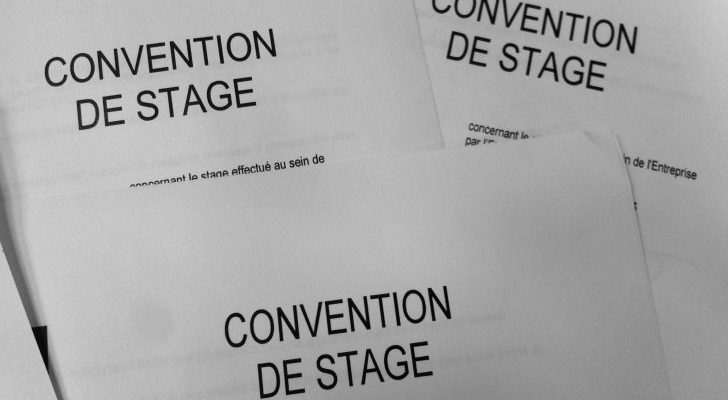En France, le nombre de stages augmente chaque année : de 800 000 stagiaires en 2005, ils seraient estimés à 1,5 million en 2010 selon le Conseil Economique et Social.
En effet, nombre d’écoles requièrent de la part de leurs étudiants d’effectuer un stage en entreprise afin de valider leur diplôme et environ 70% des étudiants de master déclarent au moins un stage pendant leurs années universitaires.
Les difficultés à ce stade ? Avoir un bon CV, savoir rédiger une lettre de motivation et assurer à son entretien d’embauche ! Bref, rien d’insurmontable si on connait quelques bonnes pratiques !
Une fois le diplôme en poche, bienvenu sur le marché du travail !
Avec un taux de chômage de 25,6% chez les jeunes de moins de 25 ans, trouver un premier emploi s’avère légèrement plus difficile que prévu, et réaliser un stage en entreprise semble être une bonne alternative.
Problème ? Sans école/université, pas de convention = pas de stage !
Et les solutions sont peu nombreuses et plutôt onéreuses… A moins de partir à l’étranger où les conventions de stage ne sont pas obligatoires ou de débourser plusieurs milliers d’euros pour une année de césure, bonjour la galère ! Certaines grandes écoles et universités sont désormais devenues réputées pour offrir des conventions de stage à des prix exorbitants, profitant ainsi de la situation de difficulté dans laquelle se trouvent les jeunes diplômés. «Sciences Po m’a réclamé 2500 euros pour une convention de stage de 6 mois » témoigne Julie sur un forum. Et c’est loin d’être un cas isolé…
Ainsi, on observe nombre d’entre eux quitter la France pour rejoindre d’autres destinations, notamment les Etats-Unis, l’Asie et l’Amérique Latine. Certains se tournent vers une nouvelle tendance, celle des universités en ligne : la plupart sont reconnues et permettent d’avoir accès à des cours et d’obtenir des conventions de stage pour un coût très abordable. La flexibilité des cours en ligne permet d’envisager sereinement son stage et d’étudier tranquillement le weekend ou le soir.
Toutefois, cette situation pose une vraie question : faut-il assouplir la législation et permettre d’effectuer des stages plus facilement, ce qui favoriserait une certaine précarité des jeunes ou bien la conserver au risque de perdre nos talents les plus prometteurs ? Le débat est bel et bien ouvert en France !






